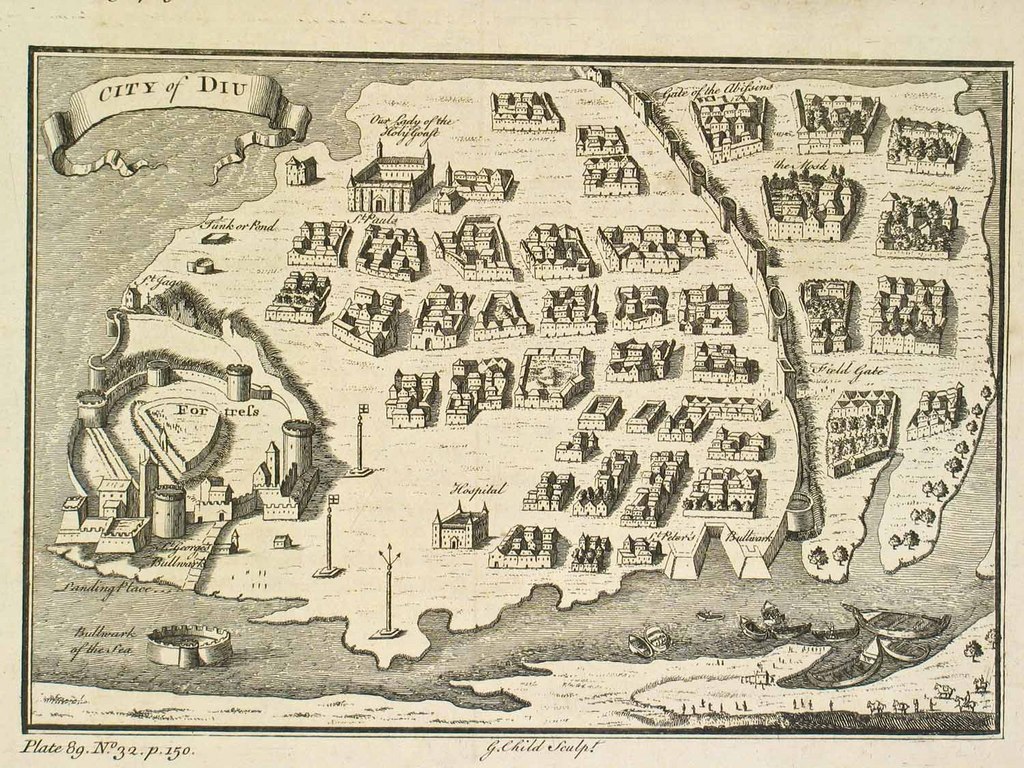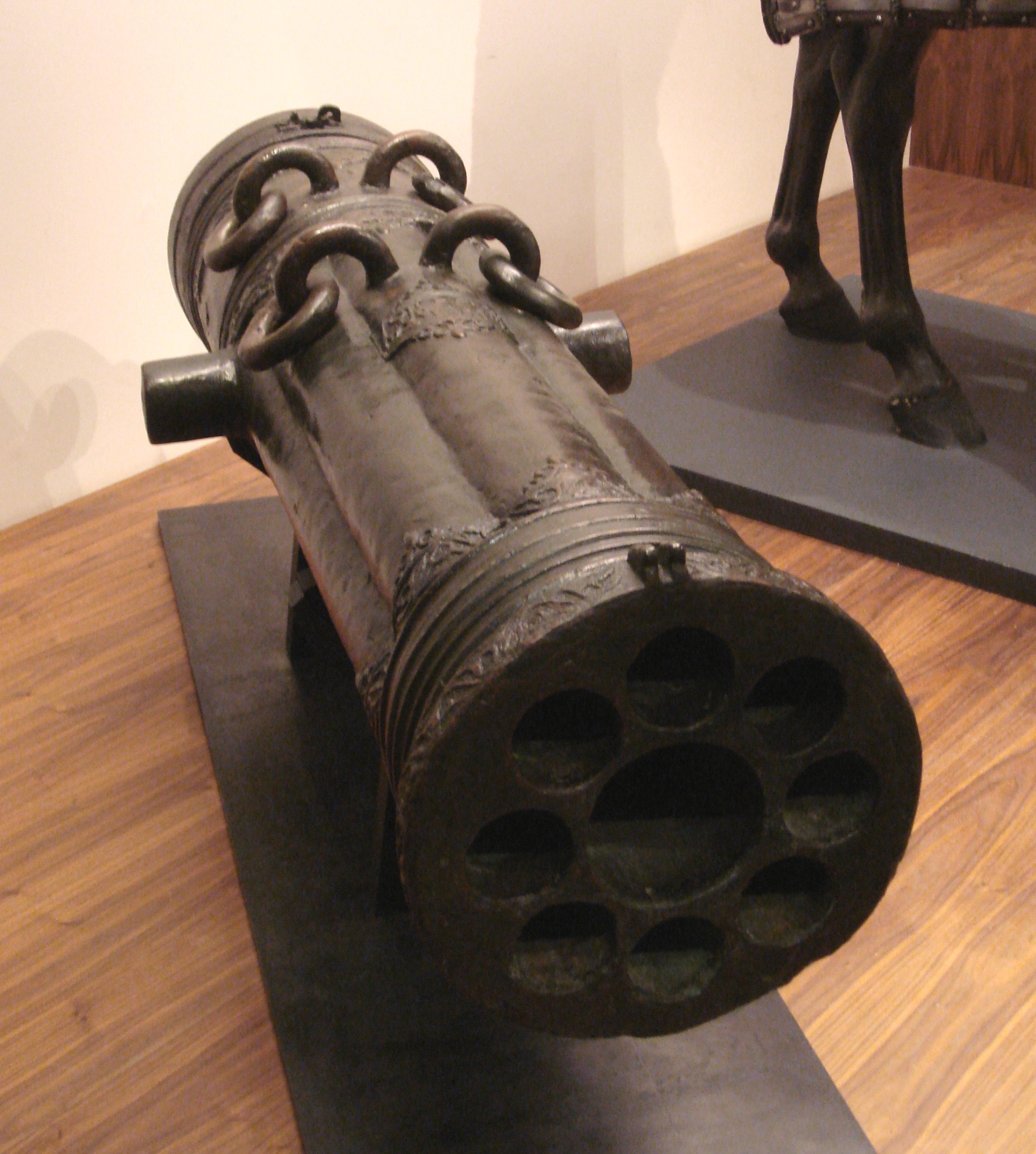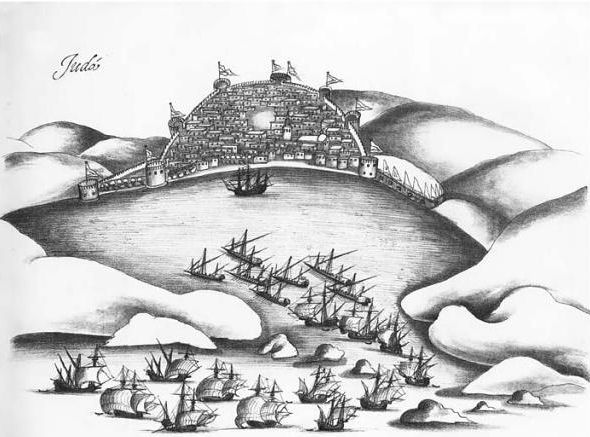|
Mirocem
Amir Husain Al-Kurdi (, ), named Mihir Hussain or Mir-Hocém or Mirocém by the Portuguese, was a Kurdish governor of the city of Jeddah in the Red Sea, then part of the Mamluk Sultanate, in early 16th century. He stood out as admiral of the Mamluk fleet fought by the forces of the Portuguese Empire in the Indian Ocean. Shortly after the arrival of the Portuguese to the Indian sea, Mirocem was sent by the last Mamluk Sultan, Al-Ashraf Qansuh al-Ghawri, to defend his interests in the sea, including the defense of the fleets of Muslim pilgrims to Mecca, then part of the sultanate. In 1508, he joined Malik Ayyaz, an admiral from Gujarat, as leader of the Mamluk fleet at the battle of Chaul, where they faced and defeated the fleet of Lourenço de Almeida, son of the Portuguese viceroy of India, D. Francisco de Almeida. Following this battle, he was fiercely fought by the viceroy himself, who in 1509 invested and won the Battle of Diu seeking Mirocem to avenge the death of his son ... [...More Info...] [...Related Items...] OR: [Wikipedia] [Google] [Baidu] |
Battle Of Diu
The Battle of Diu was a naval battle fought on 3 February 1509 in the Arabian Sea, in the port of Diu, India, between the Portuguese Empire and a joint fleet of the Sultan of Gujarat, the Mamlûk Burji Sultanate of Egypt and the Zamorin of Calicut.Rogers, Clifford J. ''Readings on the Military Transformation of Early Modern Europe'', San Francisco:Westview Press, 1995, pp. 299–333 aAngelfire.com/ref> The Portuguese victory was critical: the great Muslim alliance was soundly defeated, easing the Portuguese strategy of controlling the Indian Ocean to route trade down the Cape of Good Hope, circumventing the historical spice trade controlled by the Arabs and the Venetians through the Red Sea and Persian Gulf. After the battle, the Kingdom of Portugal rapidly captured several key ports in the Indian Ocean including Goa, Ceylon, Malacca, Bom Baim and Ormuz. The territorial losses crippled the Mamluk Sultanate and the Gujarat Sultanate. The battle catapulted the growth ... [...More Info...] [...Related Items...] OR: [Wikipedia] [Google] [Baidu] |
Francisco De Almeida
'' Dom'' Francisco de Almeida (; c. 1450 – 1 March 1510), was a Portuguese nobleman, soldier and explorer. He distinguished himself as a counsellor to King John II of Portugal and later in the wars against the Moors and in the conquest of Granada in 1492. In 1505 he was appointed as the first governor and viceroy of the Portuguese State of India (''Estado da Índia''). Almeida is credited with establishing Portuguese hegemony in the Indian Ocean with his victory at the naval Battle of Diu in 1509. Before Almeida returned to Portugal he lost his life in a conflict with indigenous people at the Cape of Good Hope in 1510. His only son Lourenço de Almeida had previously been killed in the Battle of Chaul. Exploits as soldier Almeida was born at Lisbon. As was customary for men in his social circle, he joined the military at an early age. In 1476 he took part in the Battle of Toro. Then he fought in conflicts in different parts of Morocco and in 1492 participated in the Chris ... [...More Info...] [...Related Items...] OR: [Wikipedia] [Google] [Baidu] |
Jeddah
Jeddah ( ), alternatively transliterated as Jedda, Jiddah or Jidda ( ; , ), is a List of governorates of Saudi Arabia, governorate and the largest city in Mecca Province, Saudi Arabia, and the country's second largest city after Riyadh, located along the Red Sea coast in the Hejaz region. Jeddah is the commercial center of the country. It is not known when Jeddah was founded, but Jeddah's prominence grew in 647 when the Caliphate, Caliph Uthman made it a travel hub serving Muslims, Muslim travelers going to the holy city of Mecca for Islamic pilgrimage. Since those times, Jeddah has served as the gateway for millions of pilgrims who have arrived in Saudi Arabia, traditionally by sea and recently King Abdulaziz International Airport, by air. With a population of about 3,751,722 people as of 2022, Jeddah is the largest city in Mecca Province, the largest city in Hejaz, the List of cities in Saudi Arabia by population, second-largest city in Saudi Arabia (after the capital Riyadh), ... [...More Info...] [...Related Items...] OR: [Wikipedia] [Google] [Baidu] |
Malik Ayyaz
Malik Ayyaz, called Meliqueaz by the Portuguese, was a naval officer and governor of the city of Diu, in the mouth of the Gulf of Khambhat (Cambay), circa 1507–1509 under the rule of Gujarat Sultanate. He was one of the most distinguished warriors of his time. Meliqueaz was a Mamluk of Dalmatian Christian origin, who had been imprisoned and converted to Islam. Taken to India he went to the Gujarat Sultanate and he distinguished at the service of the Sultan Mahmud Begada of Gujarat (''Malik'' being the equivalent of Lord). At that time Gujarati were important middlemen in the trade with Red Sea, Egypt, and Malacca, and when the Portuguese threatened this field, the Sultan put the defense in the hands of Meliqueaz. With the aim at expelling the Portuguese from the Arabian Sea, the sultan allied with the zamorin of Khozikode and asked the Mamluk Sultanate of Cairo for help. With Ottoman support, the Mamluks prepared then a fleet in the Red Sea. In March 1508, commanded by Miroce ... [...More Info...] [...Related Items...] OR: [Wikipedia] [Google] [Baidu] |
Mansel Longworth Dames
Mansel Longworth Dames (1850–1922) was a scholar of oriental and Portuguese languages. Longworth Dames was born in Bath, Somerset, Bath in 1850, the eldest son of George Longworth Dames and Caroline Amelia Brunswick. Longworth Dames passed the Indian Civil Service examination in 1868, and on his arrival in India in 1870 was posted to the Punjab, India, Punjab. He served continuously till his retirement in 1897, apart from in 1879 when he was on special duty with the troops during the Second Anglo-Afghan War. Much of his service was passed in the trans-Indus district of Dera Ghazi Khan, where he had opportunities for studying the Baluch people (Baloch) and became an authority on the various dialects of the Balochi language, Baluch and Pushtu languages. In 1891 he published a Baluchi grammar and textbook, which was used for many years by students. He contributed in 1904 to the monograph series of the Royal Asiatic Society an account of the Baluch, and in the following year the R ... [...More Info...] [...Related Items...] OR: [Wikipedia] [Google] [Baidu] |
Mamluk Emirs
Mamluk or Mamaluk (; (singular), , ''mamālīk'' (plural); translated as "one who is owned", meaning "slave") were non-Arab, ethnically diverse (mostly Turkic, Caucasian, Eastern and Southeastern European) enslaved mercenaries, slave-soldiers, and freed slaves who were assigned high-ranking military and administrative duties, serving the ruling Arab and Ottoman dynasties in the Muslim world. The most enduring Mamluk realm was the knightly military class in medieval Egypt, which developed from the ranks of slave-soldiers. Originally the Mamluks were slaves of Turkic origins from the Eurasian Steppe, but the institution of military slavery spread to include Circassians, Abkhazians, Georgians, Armenians, Russians, and Hungarians, as well as peoples from the Balkans such as Albanians, Greeks, and South Slavs (''see'' Saqaliba). They also recruited from the Egyptians. The "Mamluk/Ghulam Phenomenon", as David Ayalon dubbed the creation of the specific warrior class, was of gre ... [...More Info...] [...Related Items...] OR: [Wikipedia] [Google] [Baidu] |
16th-century Kurdish People
The 16th century began with the Julian year 1501 (represented by the Roman numerals MDI) and ended with either the Julian or the Gregorian year 1600 (MDC), depending on the reckoning used (the Gregorian calendar introduced a lapse of 10 days in October 1582). The Renaissance in Italy and Europe saw the emergence of important artists, authors and scientists, and led to the foundation of important subjects which include accounting and political science. Copernicus proposed the heliocentric universe, which was met with strong resistance, and Tycho Brahe refuted the theory of celestial spheres through observational measurement of the 1572 appearance of a Milky Way supernova. These events directly challenged the long-held notion of an immutable universe supported by Ptolemy and Aristotle, and led to major revolutions in astronomy and science. Galileo Galilei became a champion of the new sciences, invented the first thermometer and made substantial contributions in the fields of phy ... [...More Info...] [...Related Items...] OR: [Wikipedia] [Google] [Baidu] |
Ottoman–Mamluk War (1516–1517)
The Ottoman–Mamluk War of 1516–1517 was the second major conflict between the Egypt-based Mamluk Sultanate and the Ottoman Empire, which led to the Fall of the Mamluk Sultanate and the incorporation of the Levant, Egypt, and the Hejaz as provinces of the Ottoman Empire. The war transformed the Ottoman Empire from a realm at the margins of the Islamic world, mainly located in Anatolia and the Balkans, to a huge empire encompassing much of the traditional lands of Islam, including the cities of Mecca, Cairo, Damascus, and Aleppo. Despite this expansion, the seat of the empire's political power remained in Constantinople. Background The relationship between the Ottomans and the Mamluks had been adversarial since the Fall of Constantinople to the Ottomans in 1453; both states vied for control of the spice trade, and the Ottomans aspired to eventually take control of the Holy Cities of Islam. An earlier conflict, which lasted from 1485 to 1491, had led to a stalemate. Having ... [...More Info...] [...Related Items...] OR: [Wikipedia] [Google] [Baidu] |
Lopo Soares De Albergaria
Lopo Soares de Albergaria ( – ) was the fifth captain-major of the Portuguese Gold Coast and third governor of Portuguese India, having reached India in 1515 to succeed Afonso de Albuquerque as governor. Career Lopo Soares de Albergaria (sometimes called Lopo Soares de Alvarenga, or simply Lopo Soares) was a middling noble, well-connected to the powerful Almeida family. Lopo Soares had served a successful term (1495–99) as captain-general of São Jorge da Mina in the Portuguese Gold Coast (West Africa). In 1504 Lopo Soares commanded the 6th Portuguese India Armada. Regarded as one of the more successful early India armadas, Lopo Soares brought the fleet back in 1505 nearly intact, with one of the best cargos yet received by King Manuel I of Portugal. This placed him in a good position for future preferment and appointments. In March 1515 Lopo Soares de Albergaria was chosen by King Manuel I to succeed Afonso de Albuquerque as governor of Portuguese India, and departed f ... [...More Info...] [...Related Items...] OR: [Wikipedia] [Google] [Baidu] |
Siege Of Jeddah (1517)
The siege of Jeddah was a naval battle that took place in the harbor of Jeddah between a Portuguese expeditionary force under Lopo Soares de Albergaria and Ottoman elements under Selman Reis.Serjeant, R. B. (1974). ''The Portuguese off the South Arabian Coast: Hadramī chronicles, with Yemeni and European accounts of Dutch pirates of mocha in the seventeenth century''. Librairie du Liban. 50-51, citing al-Shiḥrī The Portuguese fleet arrived off the city’s coast on Easter day, 1517 (12 April), Hijri year 923, and moored in the channel.Meloy, J. L. (2010). ''Imperial power and Maritime Trade: Mecca and Cairo in the later Middle Ages''. Published by the Middle East Documentation Center on behalf of the Center for Middle Eastern Studies, University of Chicago. 223. After a quick naval action that day with few casualties, shore artillery prevented the Portuguese from landing, and weather ultimately caused them to withdraw. Background Relations between the Portuguese and Mam ... [...More Info...] [...Related Items...] OR: [Wikipedia] [Google] [Baidu] |
Selman Reis
Selman Reis was an Ottoman admiral and former corsair who was active in the Mamluk Navy of Egypt and later in the Ottoman Navy against the Portuguese in the first half of the 16th century. Selman Reis was originally from the Aegean island of Lesbos. ''The Ottoman Age of Exploration'' Giancarlo Casale p.39/ref> Mercenary for the Mamluk regime Selman Reis entered the service of the Mamluks, and led a group of 2,000 Levantines, against the wishes of the Ottoman Sultan Selim I. ''The Ottoman Age of Exploration'' Giancarlo Casale p.32/ref> Following the disruption of the spice trade between India and Mamluk Egypt by the Portuguese, Selman Reis led a Mamluk fleet of 19 ships into the Indian Ocean in 1515. He left Suez leading the fleet on 30 September 1515. ''An Economic and Social History of the Ottoman Empire, Volume 1'' by Halil İnalcik p.321''ff''/ref> The fleet also included 3,000 men, 1,300 of whom were Turkish soldiers. The fleet built a fortress in Kamaran, but failed to ... [...More Info...] [...Related Items...] OR: [Wikipedia] [Google] [Baidu] |
Ottoman Empire
The Ottoman Empire (), also called the Turkish Empire, was an empire, imperial realm that controlled much of Southeast Europe, West Asia, and North Africa from the 14th to early 20th centuries; it also controlled parts of southeastern Central Europe, between the early 16th and early 18th centuries. The empire emerged from a Anatolian beyliks, ''beylik'', or principality, founded in northwestern Anatolia in by the Turkoman (ethnonym), Turkoman tribal leader Osman I. His successors Ottoman wars in Europe, conquered much of Anatolia and expanded into the Balkans by the mid-14th century, transforming their petty kingdom into a transcontinental empire. The Ottomans ended the Byzantine Empire with the Fall of Constantinople, conquest of Constantinople in 1453 by Mehmed II. With its capital at History of Istanbul#Ottoman Empire, Constantinople (modern-day Istanbul) and control over a significant portion of the Mediterranean Basin, the Ottoman Empire was at the centre of interacti ... [...More Info...] [...Related Items...] OR: [Wikipedia] [Google] [Baidu] |










